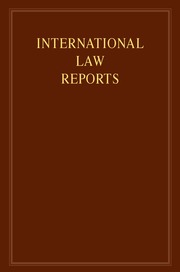No CrossRef data available.
Article contents
Handyside Case
Published online by Cambridge University Press: 01 January 2021
Abstract
The individual in international law — Human rights and freedoms — Freedom of expression — Limits on freedom of expression — Conviction of publisher and seizure of publications under obscenity legislation — Whether restrictions necessary for the protection of morals — No common European concept of morals — Margin of appreciation afforded to State authorities — Function of freedom of expression in a democratic society — Relevance of age of target readership of literature — Relevance of attitude of other European States towards same publication — Relevance of attitude of national authorities towards other similar publications — European Convention for the Protection of Human Rights and Fundamental Freedoms, Articles 10, 17 and 18
Discrimination — Whether seizure of allegedly obscene literature politically motivated — European Convention, Article 14
Deprivation of possessions — Meaning — Provisional seizure pending trial — Eventual destruction — Whether necessary — First Protocol to the European Convention, Article 1
European Court of Human Rights — Jurisdiction — Supervisory role in relation to Article 10 and Article 1 of the First Protocol to the European Convention — Capacity to review decisions of national authorities — Capacity to consider allegation already rejected by Commission as manifestly ill-founded
Treaties — Interpretation — Bilingual treaties — Comparison of French and English texts
Keywords
- Type
- Case Report
- Information
- Copyright
- © Cambridge University Press 1980


